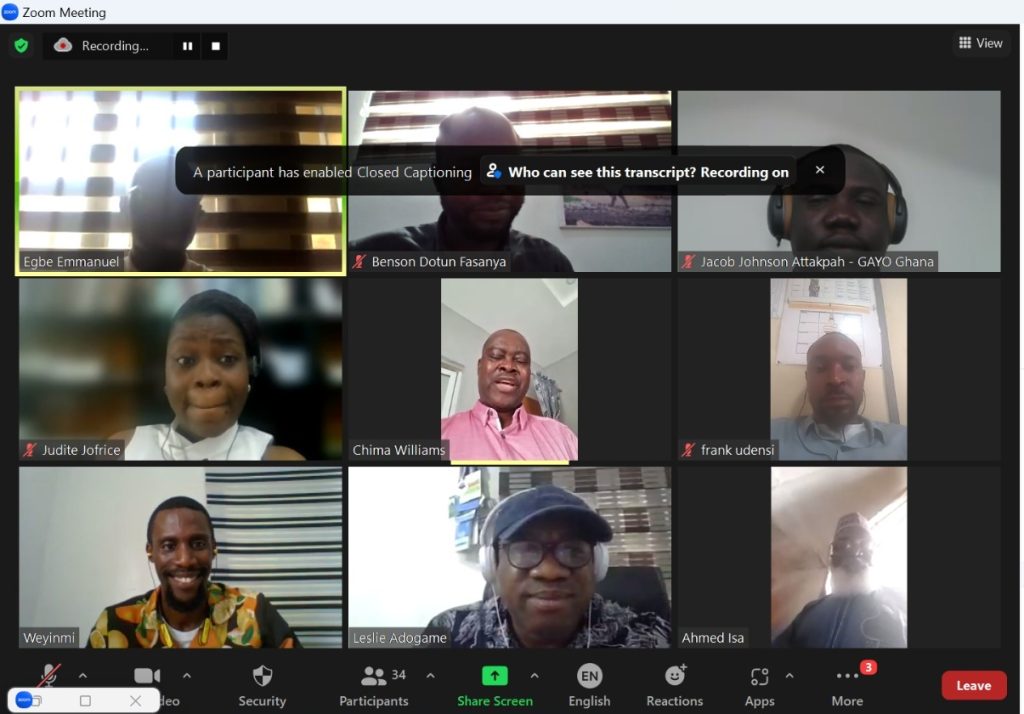Environmental Rights Action Proposes Route to Nigeria’s Transition to Zero Waste

By Ekemini Simon
An advocacy non-governmental organisation that works on environmental human rights issues in Nigeria, Environmental Rights Action/ Friends of the Earth Nigeria (ERA/FoEN) has proposed the route Nigeria should take in transiting to zero waste.
The organisation made their recommendations known on Tuesday during its webinar tagged “Transiting to Zero Waste: Challenges and Opportunities.”

Speaking on the topic,the Founder and Executive Director of Centre for Earth Works, Benson Fasanya noted that Zero Waste is a real solution built on five pillars that betters people’s lives and safeguards the environment.
He mentioned the pillars to include the need to set a goal to zero waste, holding producers of waste accountable, encouraging responsible consumption habits, building zero waste infrastructure, and prioritizing social and environmental justice.
Fasanya noted that when the country attains the state of zero waste, there will be several opportunities to include job creation, saving the planet, resource recovery, end of the era of incineration, toxics free future, climate action and chemical action.
The Executive Director said to achieve zero waste, Nigerians must be innovative in putting to practice the 6 Rs of waste management; Refuse Reduce, Repurpose, Reuse, Recycle, and Redesign.
He recommended part of the actions that must be taken to include starting compost waste business, being innovative, collection of waste, preference to circular economy, and adoption of technology in waste management.
Also in his presentation, the Executive Director of Sustainable Research and Action for Environmental Development (SRADev), Dr. Leslie Adogame noted that living a zero waste lifestyle whether at home or in the business, means one must strive to use little single-use plastic as possible, and must opt for sustainable and reusable alternatives.
He said plastic must be replaced as with reusable products including everything from clothing, to food and drink packaging, to hygiene products.
Adogame stated that this will ultimately protect the environment, benefit communities and support a circular economy.
He added “The 3 R’s play an important role in this: Reduce, Reuse, Recycle. This means reducing what you use, reusing as much as you can, sending what is left to recycling, and compost what you cannot, then finally the small part of waste left goes to landfill.
” In short, it means you send as little as possible to landfills, which can damage the environment and natural habitat around them.”
He offered insight to the fact that Zero waste may sound like an unachievable pie in the sky goal, but it is just a goal, a visionary term with the intention of having a positive impact on the planet.
Adogame pointed out that by making a conscious effort to make better choices, Zero waste can be achieved.
Earlier, the Executive Director of Environmental Rights Action/ Friends of the Earth (ERA/FoEN),Barr. Chima Williams warned that if Nigeria does not take serious steps towards zero waste, the country will be consumed by environmental disaster . He noted that if Nigeria is serious about implementing the Sustainable Development Goal 12 of Responsible Consumption and Production, the country must take urgent steps to achieve zero waste.
On his part, the Program Manager of Environmental Rights Action/ Friends of the Earth (ERA/FoEN), Ubrei-Joe Mariere said ERA through the webinar sought the best way to tackle the root causes of waste and broaden the obligation for real solutions.
He explained that for the first time, the United Nations General Assembly on 14 December 2022 formally recognized the importance of zero-waste initiatives and proclaimed 30 March as the International Day of Zero Waste, to be observed annually beginning in 2023.
Mariere said zero-waste initiatives can foster sound waste management, minimize and prevent waste.
He added “This is a huge success story from the work of GAIA/BFFP members worldwide who have been championing the cause for zero waste for many years now.
“The webinar is aimed at raising public awareness on the use of zero waste as a viable solution to the waste management and climate change crises and to look at the various advocacy options to engage the federal government of Nigeria in the inclusion of zero waste in its national waste and climate policies.”
Meanwhile, the conversation on the webinar focused on four topics (1) Transiting to Zero Waste: Challenges and Opportunities, (2) Post INC Conversations; (3) Unveiling the GAIA Nigeria Zero Waste Guideline; and (4) Advocacy efforts in the promotion of Zero Waste in Nigeria.









